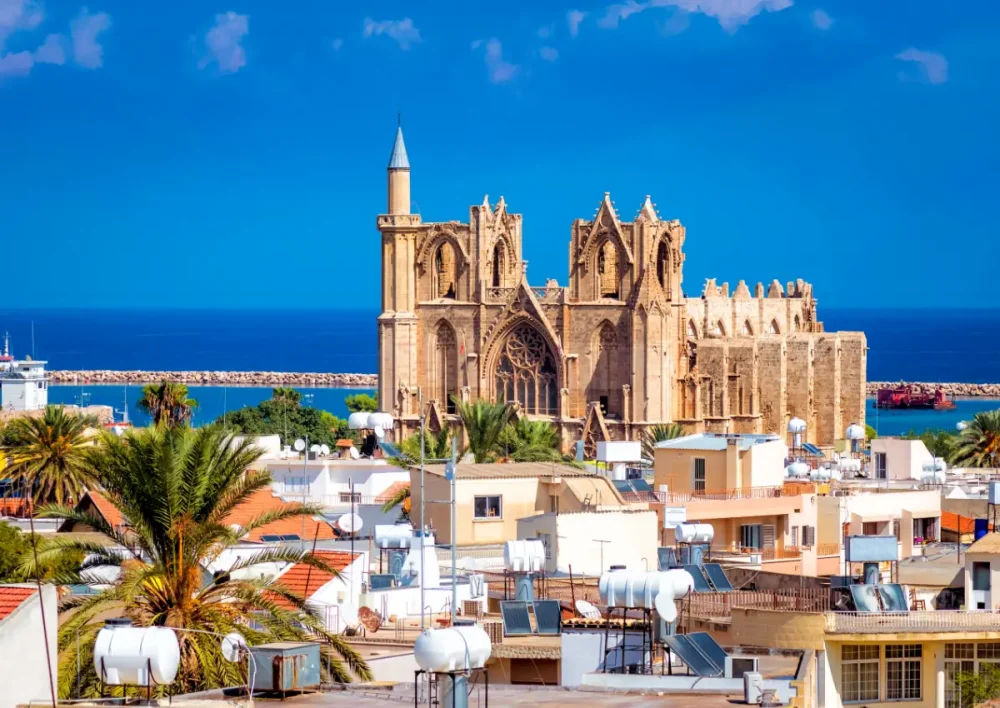In 2025, a mortgage in Cyprus for foreigners is becoming an increasingly popular tool for buying property in one of the most stable corners of the Mediterranean. Investors are seeking not only relaxation by the sea but also ways to legalize their residence and preserve capital. The question of how to get a mortgage in Cyprus arises for many who view local real estate as part of an investment portfolio or relocation plan.
It is important to understand that the banking system is loyal but far from unprincipled. A foreigner can get a loan, but only by adhering to strict rules: from verified income to readiness for an initial deposit. And if approached correctly, the loan process here will be no more difficult than in EU countries.

How to get a mortgage in Cyprus: the process
Unlike some countries, Cypriot jurisdiction allows mortgage lending to non-residents, provided that the bank deems the borrower financially reliable. It is not about citizenship but about income transparency and compliance with requirements.
Buying property in Cyprus on mortgage is possible both in the primary and secondary markets. The process takes from one to three months and includes a credit history check, document analysis, and legal assessment of the property itself. In case of a positive decision, the bank provides financing, securing a mortgage on the acquired property.
Requirements for bank financing: what is important to consider in 2025
In 2025, the conditions for a mortgage in Cyprus for foreigners remain relatively stable. Average rates vary from 3.5% to 5% per annum depending on the chosen bank, type of loan, and loan term. The standard loan term is from 10 to 25 years. The down payment is a minimum of 30–40% of the property value.
Some banks require the borrower to open an account and deposit a certain amount, while others provide financing only for specific projects. In any case, the decision will be individual, so preliminary consultation is important. Below are the key parameters that affect approval:
- stable income – documented and translated into English;
- down payment – the higher, the better the loan terms;
- absence of debt obligations – especially in international reporting systems;
- clean transaction – no legal risks regarding the property;
- creditworthiness – analysis of the borrower’s overall financial position.
Based on these grounds, the bank establishes rules, including mortgage rates in Cyprus, the available loan amount, and the possible repayment schedule. Hence, the importance of a clear understanding of one’s own capabilities and correct document submission.
Investor requirements: who can expect approval
A foreign citizen can apply if certain requirements are met. The bank does not assess nationality but checks income levels, credit history, absence of debts, and the purpose of the purchase. To understand how to get a mortgage in Cyprus, it is important to consider the basic criteria that the borrower must meet. Let’s look at the main requirements for investors:
- official income – at least 3–4 thousand euros per month for a family;
- age up to 65 years at the end of payments – often there is a fixed restriction;
- submission of complete documentation – with translation and apostille;
- opening a bank account – for transactions;
- willingness to pay 30–40% of the property value – from own funds.
Requirements may vary from bank to bank, but the general principle is the same: solvency, transparency, and legal cleanliness of the transaction. Everything else is subject to negotiation.
Documents required for loan processing
The set of documents required for loan processing is usually quite standard and differs only in details from bank to bank. To have your application considered, you need to provide a copy of your passport, income certificate from your workplace or tax return, bank account statement, preliminary purchase agreement, and a document confirming the seller’s property rights. In some cases, a marital status certificate and proof of current residence may be required.
Mandatory requirement: all documents must be translated into English and notarized. Without meeting this condition, Cypriot banks simply do not accept documents for review, and the entire mortgage process stops even before the application is evaluated. Therefore, preparing a complete package in advance is key to a successful start of the process.
Costs of raising funds: what is hidden behind the figure in the contract
If you are seriously considering how to get a mortgage in Cyprus, it is important to consider not only the loan amount and interest rate but also additional mandatory expenses. They accompany any transaction and are included either before signing the contract or simultaneously with it.
Such expenses include notary services, which can amount to one percent of the property value, state fees and stamp duty determined by a fixed scale. It will also be necessary to pay for property registration in the state registry, legal support of the transaction (especially important for foreigners), mandatory market assessment of the property, property insurance against risks, as well as bank fees for processing the application and opening a credit line.
As a rule, the total costs range from 6 to 10% of the total property value. Therefore, when planning to buy property in Cypriot jurisdiction with funding, it is necessary to budget for expenses in advance to avoid financial “surprises” at the final stage of the transaction.
Financing and Permanent Residency: Is There a Connection?
It is important to understand: Permanent Residency in Cyprus and a mortgage are not directly related. Obtaining financial support does not automatically grant the right to residency. However, when purchasing property worth at least 300,000 euros, it is possible to apply for Permanent Residency under an investment program. The main thing is that the property must be acquired without a loan. That is, a loan and investment-based Permanent Residency are mutually exclusive scenarios.

How to get a mortgage in Cyprus: conclusions
The answer to how to get a mortgage in Cyprus in 2025 is simple: with a clear plan, a complete set of documents, and an understanding of all expenses. The southern European island is open to foreign buyers but requires responsibility at every stage.
Transparency of income, attention to detail, understanding of contract terms, and accurate budget calculation are important here. Therefore, prepare for dialogue, meet requirements, and think one step ahead!
 en
en  de
de  ar
ar  es
es  nl
nl  hi
hi  fr
fr  it
it  pt
pt  el
el 









